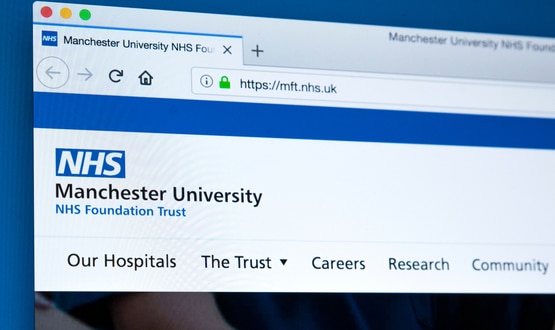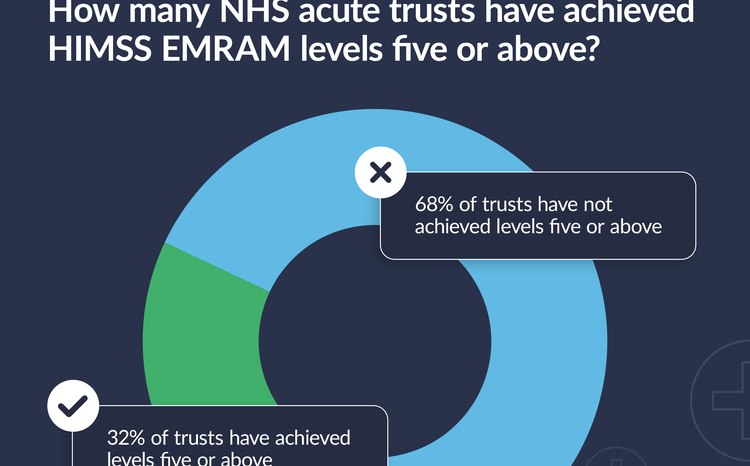Manchester University NHS FT goes digital to validate wait lists
- 21 October 2021

When Manchester University NHS Foundation Trust was looking for ways to manage the number of patients on its waitlists post-pandemic, leaders knew digital had a role to play.
The backlog of patients waiting for routine surgeries is one of the biggest problems facing the NHS following the coronavirus crisis.
Latest figures show there were 5.7 million patients still waiting to start treatment at the end of August 2021, with more than 200,000 waiting more than 52 weeks. The figures are the highest since records began.
Manchester University NHS Foundation Trust (MFT) was no different with about 20,000 people on its inpatient waiting list towards the end of last year, according to Daniel Gordon, director of corporate resilience.
But through using a digital first approach it has saved 2,100 staff hours, about £25,000, and had 1,500 patients defer their appointment to free up clinical time.
Speaking to Digital Health News, Gordon said the trust needed to find a way to contact every patient without adding extra burden on administration and clinical staff.
At the same time (October 1, 2020) NHS England has set out guidance for the clinical validation of waiting lists aimed at determine which patients had the highest clinical need and therefore needed to be seen quicker.
“The default position was we would send a physical letter out and wait for that patient to ring us up, or we would ring all those patients up,” Gordon said.
“But at the time we had quite high levels of sickness absence in certain admin teams and in addition to that you had very high levels of requirements from Covid.
“From an admin point of view, it wasn’t a good time to start adding an extra 15,000 calls to patients on top of that.”
That’s when the trust turned to a digital solution. During the pandemic it had worked with Healthcare Communications to set up a text messaging service to contact patients when their outpatient appointments were cancelled.
The 15 hospitals that form part of the trust operate in a devolved manner, meaning there was no group-wide contact centre currently in use.
Working with Healthcare Communications, the trust stood up a digital system communicate with patients about appointments in just 10 days.
“What we wanted to be able to do was to send a digital form to these patients and for them to reply using the digital form,” Gordon said.
“We have six options on that form, for example ‘I want to carry on with my wait’ or the option to defer… or asking if they’ve been treated elsewhere.
“We wanted to offer patients those choices and see what their wishes were.”
The system works by sending a text message to patients on the waiting lists which includes a digital form that asks what a patient’s wishes are for their upcoming appointment – whether that would be to continue with the appointment, to postpone, or to cancel.
To ensure all patient’s needs were catered for, and reduce the risk of digital exclusion, the trust also worked with Manchester Clinical Commissioning Group (CCG), which provided its Care Gateway as a temporary contact centre for those who preferred not to use a digital form.
“Rather than saying it’s just a digital solution and the only way of responding is by coming through a digital form, actually you create a space for where all patients can respond,” Gordon added.
Since the system has been in place 1,500 patients have chosen to defer their appointment which Gordon said is “beneficial from a service management point of view”.
It’s also saved the equivalent of 2,100 staff hours that would otherwise have been spent calling patients. In monetary terms, that’s about £25,000, according to the trust.
Integration with EPR
For Gordon, the real value of the programme is its link back into the trust’s Chameleon electronic patient record (EPR).
“It automated that process so we could then focus on identifying the patient cohort, sending the text messages out and picking up the responses at the back end,” he told Digital Health News
“For those patients who wanted to come off the waiting list or wanted to defer, every one of them would be clinically validated. The clinician would log onto the EPR to do that.
“That really is the value of it because you can link it back into a system that the teams are used to using.”
Once a patient had been clinically validated that information was then shared back to GPs and other care providers to ensure continuity of care across the system.
The introduction of digital appointment reminders is part of wider digitisation plans at the trust. It will soon be switching its to an EPR provided by Epic which Gordon said will “digitise a lot of our processes end-to-end”.
This will include the digital appointment reminders and letters currently being used, with the addition or patient portals that will allow patients to access appointment information and test results in one place.
The new EPR, expected to go live towards the end of 2022, will also replace the four legacy patient administration systems which are used across all of the trust’s sites.
Going forward, the lessons learned from rolling out digital letters will be used to shape the wider use of digital healthcare services in Manchester.
“There’s some interesting lessons when you start to look at different patient cohorts in terms of who has used it, who hasn’t used it, who has responded,” Gordon added.
“So, we can start thinking about the digital design in Manchester, how we approach that and how do we work with the City of Manchester to make sure patients can access and use the full digital suite of what’s coming in under Epic.”




